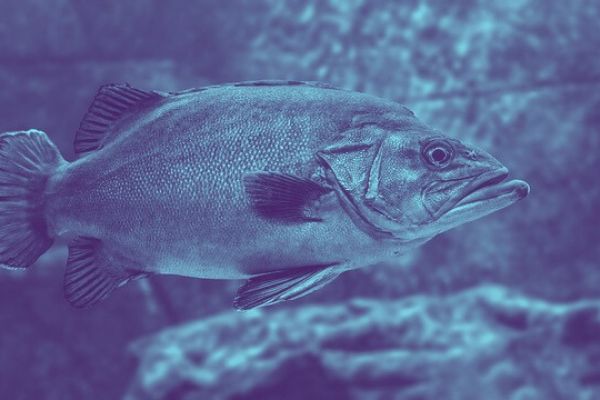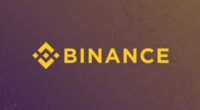In recent developments, the Norwegian Seafood Association plans to enhance their supply chain infrastructure by collaborating with IBM Blockchain. In doing so, the Association believes that consumers will experience more transparency, and have a better idea of where their seafood is coming from. Several Norwegian seafood companies are already operating on the network.
Norwegian Seafood
It’s a known fact that Norway produces some of the highest quality seafood around. It’s believed that the country exported over 2.7 million tons of seafood in 2019, which equates to 25,000 meals per minute. When we look at the supply chain of seafood, many consumers have no idea where their fish comes from. This is a traceability issue that exists in pretty much everything we eat today. According to a study by IBM, 71% of consumers explained that knowing their food’s origin is important to them. Consumers stated that they would pay a premium for food brands that were providing more clarity.
Norwegian Seafood Producers Tapping Blockchain
In recent developments, some of the leading Norwegian seafood producers plan to leverage blockchain technology. This will come to fruition through a cross-industry collaboration with Atea, Sjømatbedriftene, the Norwegian Seafood Association, and IBM. The IBM Blockchain will give several Norwegian seafood companies the ability to store data on the network. Several companies like Kvarøy Arctic, and BioMar are already involved in allocating data.
CEO of Kvarøy Arctic stated that:
“It is important for our customers to know that the seafood they eat is not only safe but produced in a sustainable and healthy manner.”
“Blockchain lets us share the fish’s journey from the ocean to the store. This is now more timely than ever, as consumers want more information about where the food they eat comes from.”
Norwegian Seafood Association Hopes It Creates Competition
The CEO of Norwegian Seafood Association, Robert Eriksson, hopes that utilizing blockchain will create competition in the industry. The IBM study that was referenced above already confirmed that a majority of consumers want additional clarity. With this being said, a few companies transitioning into blockchain now could very well shape the future in Norwegian seafood. In the event that some companies are providing more transparency than others, consumers will start to ask questions. The IBM study confirmed that consumers value transparency over cost, meaning that it might become difficult for companies to push their brand, based on lower costs and less traceability.
CEO of Norwegian Seafood Association, Robert Eriksson mentioned that:
“Norwegian seafood is known for its quality. Yet we still do not have the ability to trace where the fish came from, how it was grown or how it was stored. This creates the potential for fraud and food waste. Blockchain can help eliminate these problems with a transparent, accountable record of where each fish came from. We believe that this is only the start of something that will mean a great deal for the industry by creating more sustainable food production, which in turn will increase the return for producers.”
How The Blockchain Network Runs
Organizations can implement their own “blockchain-based ecosystems” by using the IBM offering called “IBM Blockchain Transparent Supply.” By using this product from IBM, companies can create immutable, distributed, and shared ledgers with partners in their supply chain networks. Along with deepening consumer engagement through end-to-end and real time visibility, companies also benefit from reduced supply chain costs on the administrative side of things. Creating permanent records that can be securely shared is the future of supply chain transparency. Outside of the supply chain, IBM has helped 100+ companies apply blockchain applications in sectors such as financial services, government, retail, healthcare, and many others.
Supply Chain And Blockchain Heating Up
Applying Blockchain to the food supply chain industry is becoming more popular than ever. A few years ago, many smaller companies were assessing the potential benefits. As of recent, the opportunity has attracted some of the largest companies in the world. In recent reports, UPS was tracking beef shipments on the Blockchain. UPS was working alongside an agri-tech data company to track shipments throughout Texas. Since 2018, UPS has continued to pursue various patents in the Blockchain space. As use cases continue to evolve, it will be interesting to see the growth of Blockchain applications in the next few years.
Image Source: Pixabay
Notice: Information contained herein is not and should not be construed as an offer, solicitation, or recommendation to buy or sell securities. The information has been obtained from sources we believe to be reliable; however no guarantee is made or implied with respect to its accuracy, timeliness, or completeness. Authors may own the crypto currency they discuss. The information and content are subject to change without notice. Visionary Financial and its affiliates do not provide investment, tax, legal or accounting advice. This material has been prepared for informational purposes only and is the opinion of the author, and is not intended to provide, and should not be relied on for, investment, tax, legal, accounting advice. You should consult your own investment, tax, legal and accounting advisors before engaging in any transaction. All content published by Visionary Financial is not an endorsement whatsoever. Visionary Financial was not compensated to submit this article Please also visit our Privacy policy; disclaimer; and terms and conditions page for further information.

